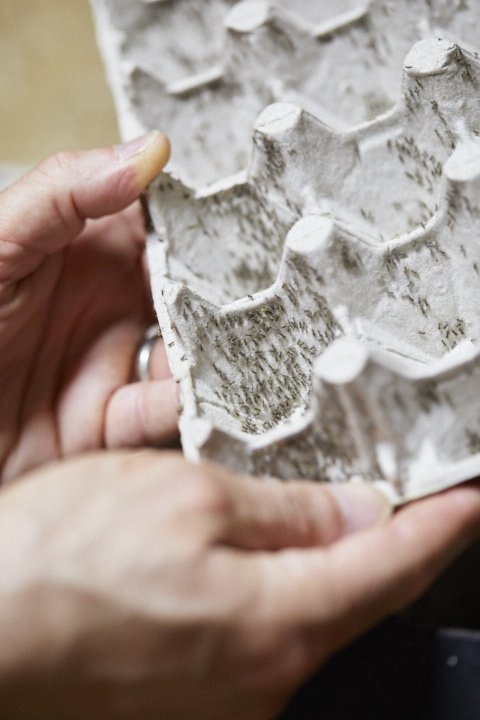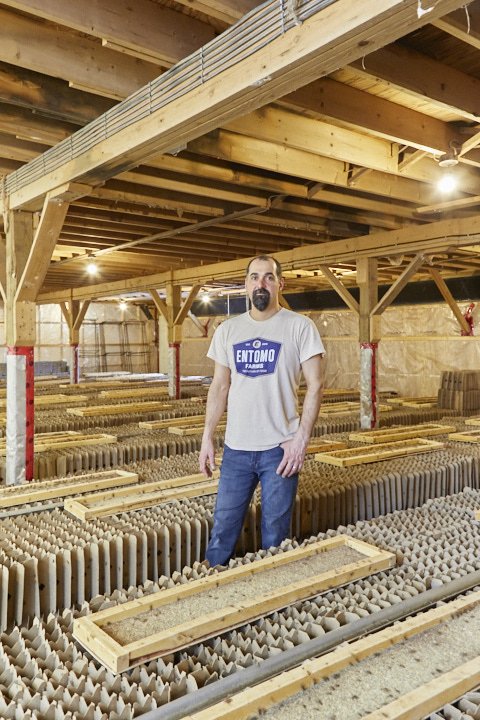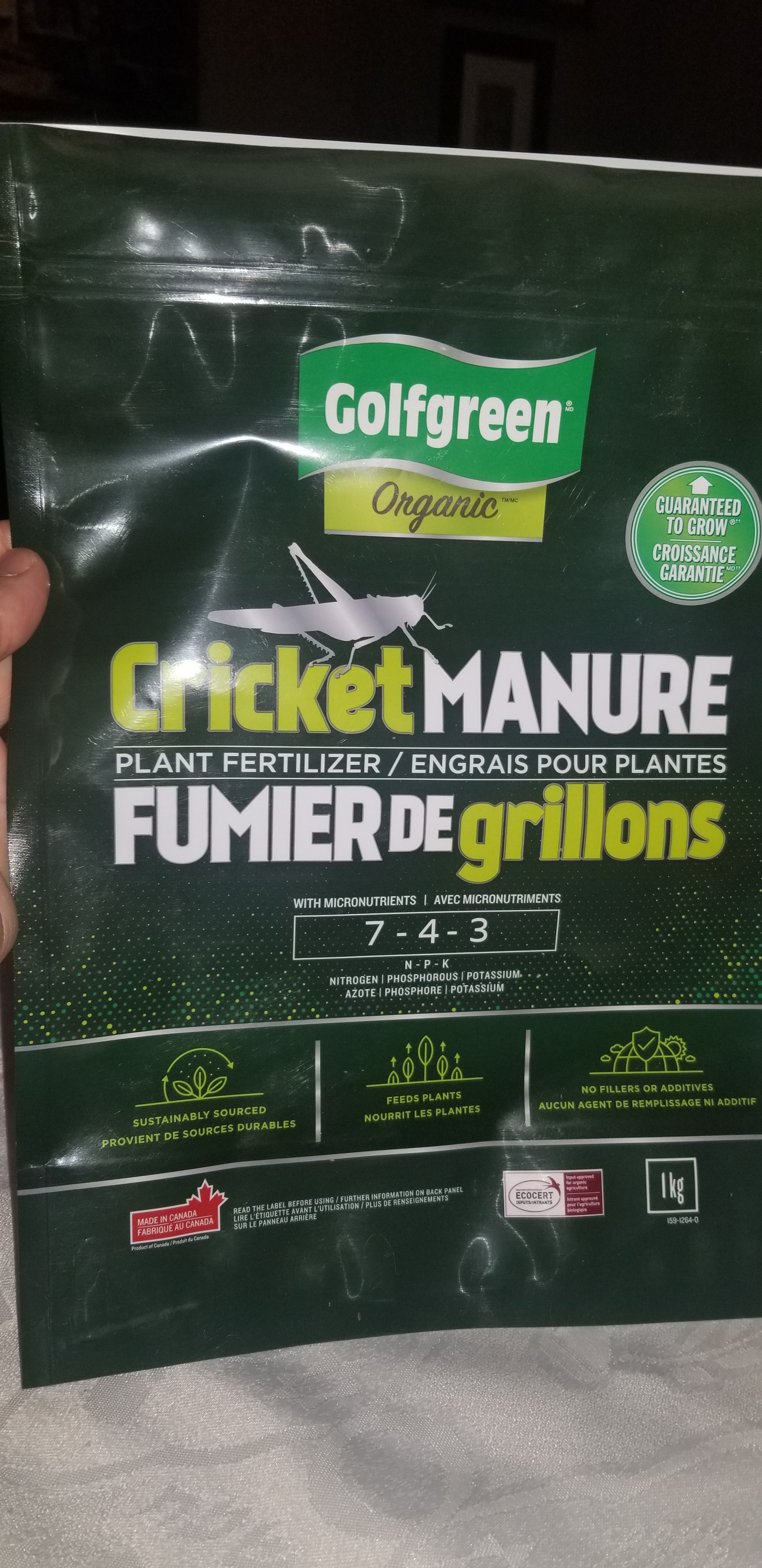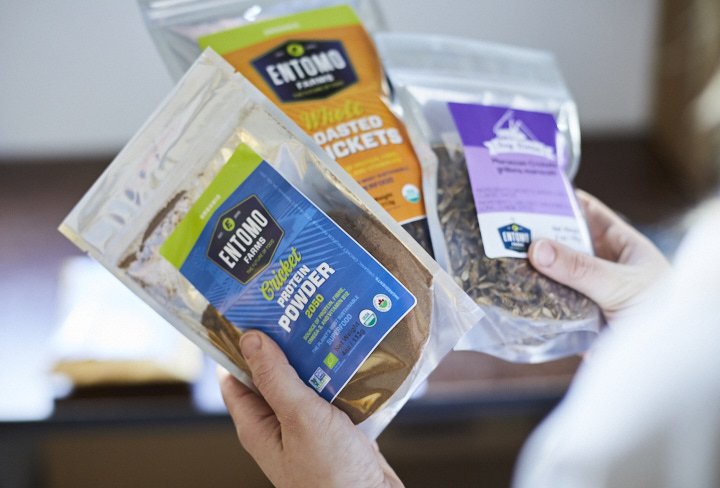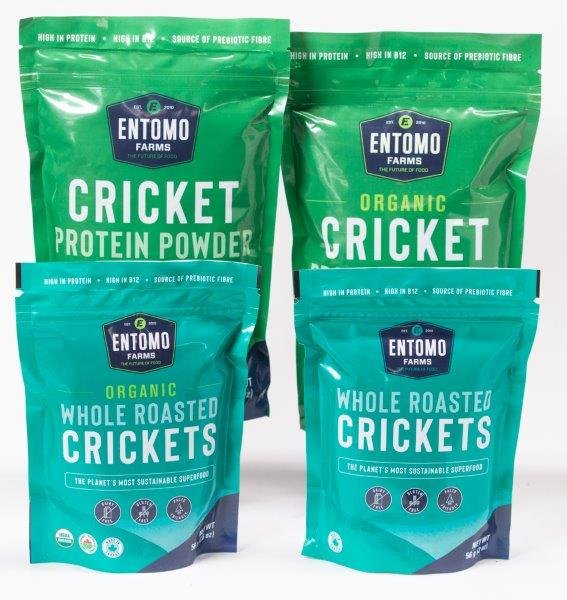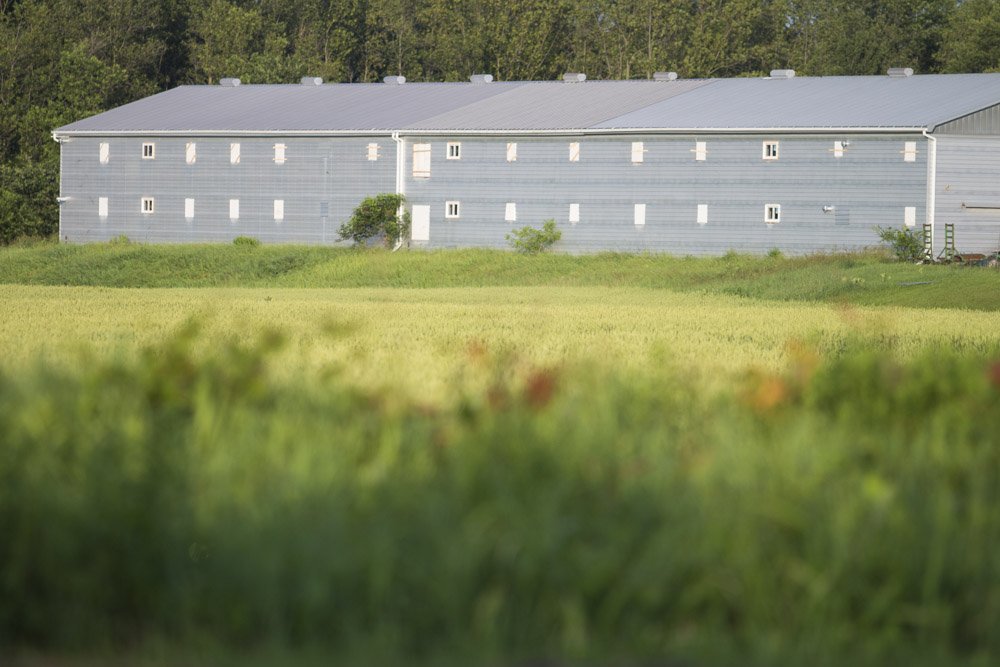Cricket Frass as Fertilizer and Crickets as Food
Jarrod Goldin from Entomo Farms talks about cricket frass as fertilizer and about crickets as food.
105 Million Head of Livestock
Jarrod Goldin, one of the founders of Entomo Farms, talks about how he and his brothers got into the business of raising food-grade crickets, the use and benefits of crickets as a food source — and about using cricket frass as a fertilizer.
Cricket Frass Fertilizer
Frass: It’s the word for insect excrement. If you’re wondering what cricket frass looks like, Goldin describes it a sand-like in texture and light coloured.
Entomo Farms initially treated it as a waste product. They gave some away, and stored some on the farm.
After seeing how well vegetation grew where they had piled the frass, and after hearing anecdotally about its use as a plant feed, Entomo Farms began to study the use of the frass as a fertilizer.
Initial trials on fields of hay have shown surprisingly large yield increases, along with longer-term residual effect.
Entomo Farms cricket frass is now available commercially.
Connect
Entomo Farms: entomofarms.com


